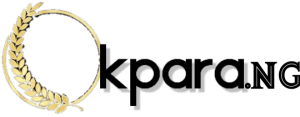Nigeria’s rich array of natural resources and agricultural products presents numerous opportunities for profitable export ventures. Below is an elaboration on 20 high-demand products that Nigerians can export, including sourcing locations within Nigeria, estimated local purchase prices as of 2025, potential international markets, and approximate selling prices abroad. Additionally, cost-effective export routes from Nigeria are discussed.

1. Cocoa Beans
Sourcing Locations: Ondo, Cross River, Ogun, and Ekiti States.
Local Purchase Price (2025): Approximately ₦3,500 per kilogram.
International Markets: Netherlands, Indonesia, Malaysia.
Selling Price Abroad: Around $8.52 per kilogram as of June 2024. citeturn0search15
2. Sesame Seeds
Sourcing Locations: Benue, Jigawa, Nasarawa, and Taraba States.
Local Purchase Price (2025): Approximately ₦800 per kilogram.
International Markets: Japan, Turkey, China, Middle East.
Selling Price Abroad: Around $1,500 per metric ton.
3. Cashew Nuts
Sourcing Locations: Kogi, Kwara, Oyo, and Enugu States.
Local Purchase Price (2025): Approximately ₦1,200 per kilogram.
International Markets: Vietnam, India, USA.
Selling Price Abroad: Around $1,800 per metric ton.
4. Ginger
Sourcing Locations: Kaduna, Nasarawa, and Gombe States.
Local Purchase Price (2025): Approximately ₦900 per kilogram.
International Markets: India, USA, UK.
Selling Price Abroad: Around $2,000 per metric ton.
5. Palm Kernel Oil
Sourcing Locations: Akwa Ibom, Rivers, Delta, and Cross River States.
Local Purchase Price (2025): Approximately ₦700 per liter.
International Markets: Malaysia, Indonesia, USA.
Selling Price Abroad: Around $1,200 per metric ton.
6. Charcoal
Sourcing Locations: Oyo, Ogun, Kogi, and Kwara States.
Local Purchase Price (2025): Approximately ₦35,000 per metric ton.
International Markets: Europe, Asia, Middle East.
Selling Price Abroad: Around $400 per metric ton.
7. Shea Butter
Sourcing Locations: Kwara, Niger, Oyo, and Kaduna States.
Local Purchase Price (2025): Approximately ₦1,500 per kilogram.
International Markets: USA, Canada, Europe.
Selling Price Abroad: Around $4,000 per metric ton.
8. Hibiscus Flower
Sourcing Locations: Kano, Katsina, Jigawa, and Borno States.
Local Purchase Price (2025): Approximately ₦500 per kilogram.
International Markets: Mexico, Germany, USA.
Selling Price Abroad: Around $2,500 per metric ton.
9. Yam
Sourcing Locations: Benue, Taraba, Niger, and Ebonyi States.
Local Purchase Price (2025): Approximately ₦200 per kilogram.
International Markets: USA, UK, Canada.
Selling Price Abroad: Around $1.50 per kilogram.
10. Snail
Sourcing Locations: Ogun, Ondo, Edo, and Delta States.
Local Purchase Price (2025): Approximately ₦1,000 per kilogram.
International Markets: Europe, North America.
Selling Price Abroad: Around $10 per kilogram.
11. Honey
Sourcing Locations: Oyo, Kaduna, Enugu, and Cross River States.
Local Purchase Price (2025): Approximately ₦2,500 per liter.
International Markets: USA, Germany, UK.
Selling Price Abroad: Around $6 per kilogram.
12. Groundnuts (Peanuts)
Sourcing Locations: Kano, Kaduna, Katsina, and Bauchi States.
Local Purchase Price (2025): Approximately ₦500 per kilogram.
International Markets: China, Netherlands, UK.
Selling Price Abroad: Around $1,200 per metric ton.
13. Moringa Products
Sourcing Locations: Benue, Kaduna, Niger, and Kwara States.
Local Purchase Price (2025): Approximately ₦1,000 per kilogram.
International Markets: India, Germany, USA.
Selling Price Abroad: Around $4,500 per metric ton.
14. Bitter Kola
Sourcing Locations: Enugu, Imo, Abia, and Ebonyi States.
**Local PurchaseContinuing from the previous list, here are products 15 through 20 that are in high demand abroad and can be exported from Nigeria for profit. For each product, sourcing locations within Nigeria, estimated local purchase prices as of 2025, potential international markets, and approximate selling prices abroad are provided.
15. Locust Beans (Iru/Dawadawa)
Sourcing Locations: Kwara, Niger, Kogi, and Benue States.
Local Purchase Price (2025): Approximately ₦2,000 per kilogram.
International Markets: USA, UK, Canada (particularly among African diaspora communities).
Selling Price Abroad: Around $10 per kilogram.
16. Garri
Sourcing Locations: Edo, Delta, Ondo, and Imo States.
Local Purchase Price (2025): Approximately ₦500 per kilogram.
International Markets: USA, UK, Canada (in areas with significant African populations).
Selling Price Abroad: Approximately $3 per kilogram.
17. Beans (Cowpea)
Sourcing Locations: Borno, Yobe, Kano, and Zamfara States.
Local Purchase Price (2025): Approximately ₦600 per kilogram.
International Markets: Middle East, USA, UK.
Selling Price Abroad: Around $1,200 per metric ton.
18. Plantain Flour
Sourcing Locations: Ekiti, Osun, Ondo, and Ogun States.
Local Purchase Price (2025): Approximately ₦700 per kilogram.
International Markets: USA, Europe (especially in health food stores).
Selling Price Abroad: Approximately $5 per kilogram.
19. Crayfish & Dry Fish
Sourcing Locations: Rivers, Bayelsa, Akwa Ibom, and Cross River States.
Local Purchase Price (2025): Approximately ₦3,000 per kilogram.
International Markets: USA, UK, Canada (particularly in African and Asian markets).
Selling Price Abroad: Around $15 per kilogram.
20. Leather and Hides
Sourcing Locations: Kano, Kaduna, Jigawa, and Katsina States.
Local Purchase Price (2025): Approximately ₦2,500 per square meter.
International Markets: Italy, Spain, China.
Selling Price Abroad: Around $10 per square meter.
Note: The local purchase prices and international selling prices provided are estimates based on available data and may vary due to market fluctuations, quality of products, and other factors. It’s advisable to conduct thorough market research and engage with potential buyers to obtain accurate and up-to-date pricing information.
Cost-Effective Export Routes from Nigeria
Exporting goods from Nigeria can be optimized by considering the following cost-effective strategies:
1. Utilize Major Seaports
Nigeria’s major seaports, such as the Apapa Port in Lagos and the Onne Port in Rivers State, are equipped with facilities to handle large volumes of exports. Utilizing these ports can reduce transportation costs and ensure efficient shipment of goods.
2. Leverage Air Freight for Perishable Goods
For perishable items like snails, crayfish, and certain agricultural products, air freight is a viable option. Airports in Lagos, Abuja, and Port Harcourt offer cargo services that can expedite delivery to international markets, ensuring product freshness.
3. Engage Freight Forwarders
Partnering with reputable freight forwarding companies can simplify the export process. These professionals handle logistics, documentation, and customs clearance, potentially reducing costs associated with delays and compliance issues.
4. Explore Regional Trade Agreements
Nigeria is a member of the Economic Community of West African States (ECOWAS) and the African Continental Free Trade Area (AfCFTA). These agreements can provide tariff reductions and simplified customs procedures when exporting to member countries.
5. Consolidate Shipments
For small-scale exporters, consolidating shipments with other exporters can lead to cost savings. Sharing container space reduces individual shipping costs and ensures better freight rates.
6. Stay Informed on Export Regulations
Keeping abreast of Nigeria’s export regulations, as well as the import requirements of target countries, can prevent costly penalties and delays. The Nigerian Export Promotion Council (NEPC) provides resources and guidance to exporters.
By implementing these strategies, Nigerian exporters can navigate the complexities of international trade more efficiently and cost-effectively.




